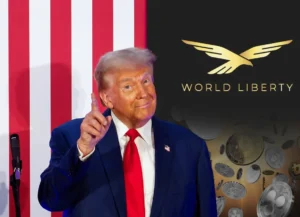Elon Musk calls for new UK elections in his latest criticism of Starmer
 Tesla CEO Elon Musk has called for new UK elections, marking the latest indication that Donald Trump’s incoming US administration could pose challenges for Keir Starmer’s government.
Tesla CEO Elon Musk has called for new UK elections, marking the latest indication that Donald Trump’s incoming US administration could pose challenges for Keir Starmer’s government.
Musk, a vocal ally of Trump, who will assume office on January 20, posted a series of critical messages on his X platform. He questioned Starmer’s track record as Britain’s Director of Public Prosecutions prior to his political career, demanded the release of far-right activist Tommy Robinson (real name Stephen Yaxley-Lennon), and claimed that Nigel Farage’s Reform UK party is the “only” hope for Britain.
In response to a post about a recent poll showing plummeting support for Starmer’s Labour government, which won a landslide victory in the July 4 general election, Musk called for a new vote. Despite the poll results, Starmer, with a commanding parliamentary majority, is not required to hold another election for 4.5 years.
Elon Musk’s latest barrage of social media posts marks another round of criticism targeting the British government. As a key figure in Donald Trump’s incoming administration, tasked with leading a department focused on improving government efficiency, Musk’s repeated attacks on a close U.S. ally risk straining the so-called special relationship between the UK and the U.S.
Musk’s criticism hasn’t been limited to UK Prime Minister Keir Starmer; he has also taken aim at Germany’s left-leaning government under Chancellor Olaf Scholz, openly supporting the anti-immigrant Alternative for Germany (AfD) party ahead of a snap election scheduled for February.
Starmer has maintained that the bond between the two nations transcends their leaders. In September, Trump hosted Starmer for a two-hour meal in New York, describing him as “very nice” before securing his second presidential term. However, Trump’s legal team later accused the Labour Party of “blatant foreign interference” and alleged illegal campaign contributions to Democratic candidate Kamala Harris in a filing with the Federal Election Commission.
Musk’s feud with the Starmer government began over the summer, fueled by criticism of how the UK handled riots sparked by false online claims that an asylum seeker was responsible for the murder of three girls. Musk has since repeatedly clashed with the government over issues like free speech and economic policy, while voicing support for figures such as Nigel Farage and Tommy Robinson.
Robinson, jailed late last year for contempt of court after spreading false accusations about a Syrian refugee, has become a central figure in Musk’s posts. Several of his overnight messages called for Robinson’s release, including one pinned to the top of his feed. Musk even endorsed a post suggesting the U.S. apply “economic and diplomatic pressure” to resolve the matter, replying with a “100” emoji.
These posts emerged amid Tesla’s ongoing investigation into a Cybertruck explosion outside Trump’s Las Vegas hotel. Musk shared multiple updates on the incident, initially stating that Tesla’s senior team was investigating and later clarifying that the explosion was caused by “very large fireworks and/or a bomb,” unrelated to the vehicle itself.
Starmer and his government have largely dismissed Musk’s criticisms and downplayed the threat posed by Reform UK. With a commanding parliamentary majority, Starmer faces little risk of losing a no-confidence vote in the House of Commons, the only mechanism that could force early elections. The next general election in the UK is scheduled for 2029.
Last month, Starmer spoke with Trump by phone as part of efforts to strengthen the UK-US relationship, despite their differing political priorities and backgrounds. Their discussion focused on continued support for Ukraine, which is uncertain under the incoming Trump administration, and efforts to secure peace in the Middle East.








